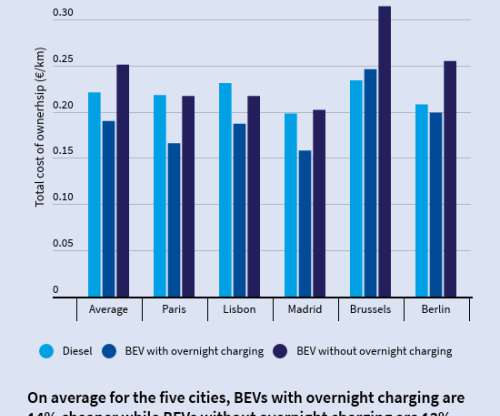City of London Corporation bans diesel vehicle purchases for its business
Green Car Congress
AUGUST 3, 2016
The City of London Corporation—the municipal governing body of the City of London—has banned the purchase of diesel vehicles for its business, in a drive to reduce public exposure to air pollution. These vehicles will continue to be used until a clean alternative becomes available on the market.

















Let's personalize your content